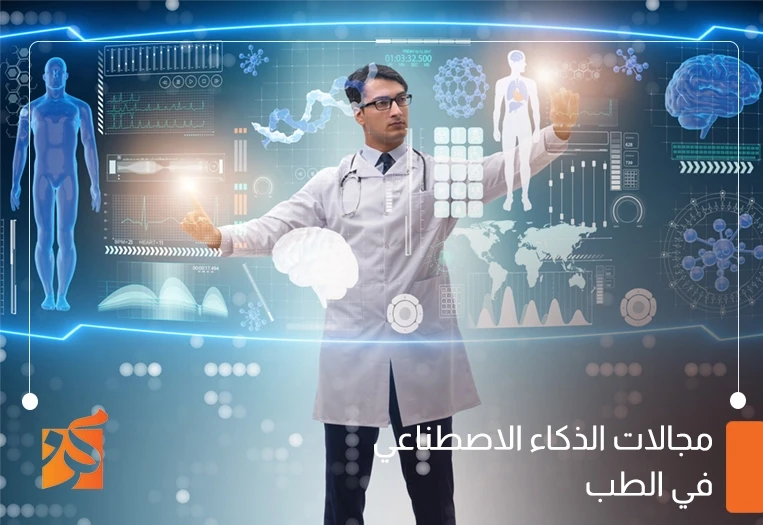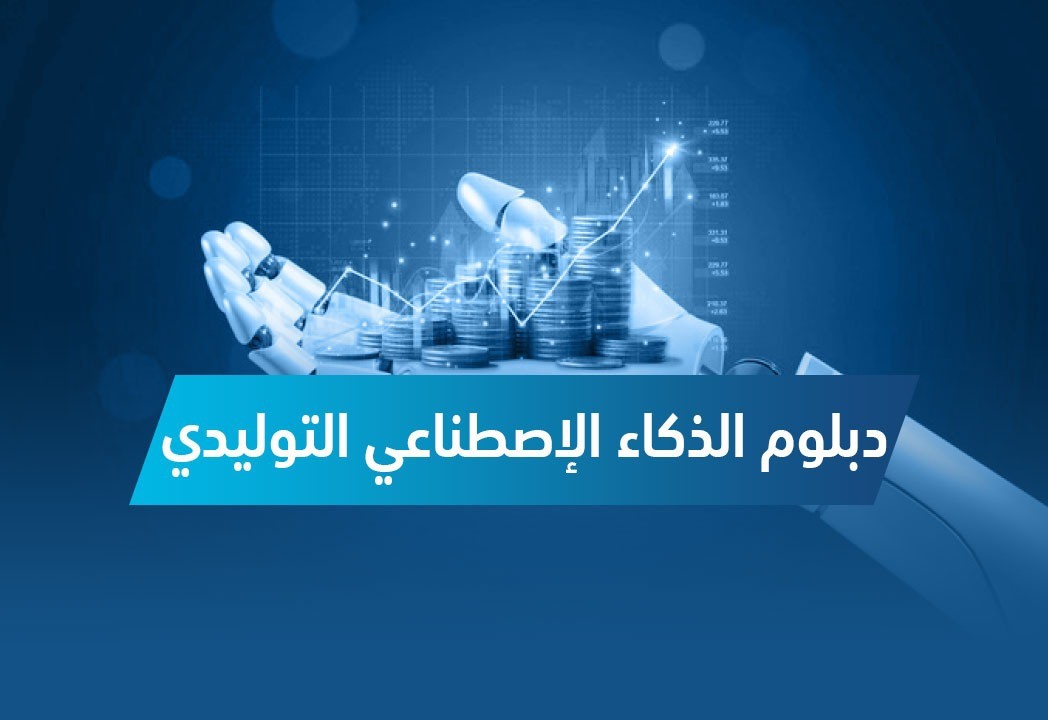
Areas of artificial intelligence in medicine87
Artificial intelligence is considered the talk of the hour and the future in the current period, as it has been able, in a short period, to conquer many fields and help many industries develop and increase productivity and work efficiency. However, there are still basic areas in which artificial intelligence aspires to expand and achieve greater impact, and on top of these are The field is the field of medicine and health care, where artificial intelligence plays pivotal roles in the medical field, and with continued progress, it is expected to bring about radical changes soon in this sector. In this article, we review the fields of artificial intelligence in medicine, and the importance of artificial intelligence in medicine, and that. With the experts of the Been Training Center It offers many specialized courses in teaching artificial intelligence, so continue reading with us until the end.
Backgrounds and facts in diagnostic medicine
Diagnosing diseases is the cornerstone of arriving at treatment, and artificial intelligence may help in this field. This is considered one of the important areas of artificial intelligence in medicine. The use of artificial intelligence in this field depends on training models on huge amounts of data and images, and the importance of artificial intelligence in medicine in This point is to improve the accuracy of diagnosis and speed up the disease detection process.
But it is important to point out a very important point, which is that the accuracy of artificial intelligence in medicine depends on the type and volume of data such as health records, laboratory results, x-rays, etc., and increasing the quantity and quality of data increases the accuracy of artificial intelligence, and currently hospitals around the world perform billions of x-rays. Annually, most of these x-rays are not useful, but they can be used to develop artificial intelligence systems to increase the accuracy of diagnosis.
The importance of artificial intelligence in medicine exists at the present time. We are not talking about anything in the future, as some studies have shown the capabilities of artificial intelligence in detecting Covid-19 cases, and in some cases these systems were able to outperform doctors, as the presence of these systems will... It helps compensate for the shortage in the number of doctors, in addition to helping doctors increase accuracy and efficiency.
AI-enabled diagnostic medicine
As we mentioned, the fields of artificial intelligence in medicine are multiple, most notably diagnostic medicine. Therefore, we find that with the development of artificial intelligence models and their assistance to doctors, we find that they serve important activities related to health care, and among the most important activities that these systems serve are:
- Improving the accuracy of results: The importance of artificial intelligence in medicine lies in its superiority over traditional systems that help in diagnosis in terms of reducing errors and bias, in addition to providing more reliable results. These systems also help in processing complex genetic data, and this provides an advantage in pathology and diagnosis. Genetic diseases, and advanced systems can learn on their own without the need for classified data or interventions from experts, so we find that they are expanding within the medical field.
- Accelerating diagnosis: The fields of artificial intelligence in medicine and smart systems speed up the diagnosis process and help obtain results in a short time. This serves health care in addition to helping on the economic level, and some current systems such as the IBM system have been able to diagnose cancer. Myeloid blood in blood samples in less than four hours, compared to the ten days it takes experts to do this.
- Early detection and prevention of diseases: Some doctors ignore early signs, and this affects the efficiency of disease prevention, but artificial intelligence can identify precise patterns of disease and detect early signs, and this benefits early prevention measures.
- Reducing costs: Relying on artificial intelligence reduces errors, costs and wasted resources such as unnecessary checks and others.
- Helping reach a broader segment of patients: Expanding reliance on artificial intelligence in medicine will help reach populations who cannot visit hospitals, and will also reduce the need for healthcare experts in remote areas.
Challenges of moving to artificial intelligence in diagnostic medicine
Although the fields of artificial intelligence in medicine are important to many people and countries, since the emergence of these systems until now, they have faced many issues and challenges, the most important of which are:
- Balancing privacy and sophistication: Patient data is a way to develop algorithms, but it is often sensitive data, and this represents a strong challenge for artificial intelligence that aims to improve healthcare while maintaining patient privacy at the same time.
- Bias: The availability of high-quality data is an important challenge to ensure that systems results are accurate and free of bias, but most data focus on specific groups of the population, and this may bias the systems in some cases.
- Difficulty in integrating with current systems: The current digital transformation has limited capabilities, so organizations that want to integrate artificial intelligence into their systems face great difficulty. This prevents it from operating these systems and making the most of them.
- Weak guidelines: The principles and legal frameworks governing the areas of artificial intelligence in medicine are weak and do not keep pace with the progress of artificial intelligence, and this is one of the challenges, especially with regard to patient privacy.
- Lack of transparency: Black box theory presents a strong challenge in understanding how these systems arrive at diagnoses; Which leads to the inability to explain the results, resulting in a loss of confidence in these systems, and may affect their expansion in the future.
- Technical issues: These systems may fail, and this raises concerns because it will affect the workflow in health facilities, and it also raises a great risk in the future, especially in cases that rely entirely on artificial intelligence systems.
Despite the importance of artificial intelligence in medicine, all these challenges and issues must be solved, in order to develop the fields of artificial intelligence in medicine, and to make the most of it.
The ethics of using artificial intelligence in medicine
The fields of artificial intelligence in medicine are large, and the importance of the field of artificial intelligence in medicine is very great. It will greatly improve health care, but it may be used in the wrong way, so there must be ethics in using artificial intelligence in medicine.
Protecting human autonomy
It is important not to undermine human autonomy when relying on AI, and humans must remain in control of these systems, in order to ensure that service providers have access to information, that people understand the role of those systems, in addition to protecting privacy and confidentiality and obtaining informed consent through Legal frameworks.
Promoting human well-being, safety and the public interest
Promoting human well-being, safety, and the public interest is paramount in the use of artificial intelligence technologies, as these systems must commit to not harming people, with the need to understand regulatory requirements related to safety and accuracy, and it is also important to provide quality control measures to ensure that medical practices are applied safely and effectively, Over time, the quality of use of AI in medicine must improve to provide accurate and reliable results, and preventing harm requires ensuring that individuals are not negatively affected, either mentally or physically, with an alternative approach taken when there is a need to ensure that people's health is not compromised. To danger.
Ensuring transparency, explanation and clarity
It is important that AI technologies are understandable to developers, professionals, patients, users and regulators, in order to improve transparency and make the technology more interpretable. Transparency requires the dissemination of adequate information, and systems must be interpretable.
Enhancing responsibility and accountability
AI systems perform specific tasks, but it is the responsibility of stakeholders to ensure that these systems are able to perform the tasks and are used by appropriate people. Responsibility can be ensured by applying human assurance that includes evaluation by patients and doctors for the development of these technologies, and in the event of an error. There must be accountability.
Ensuring inclusivity and equity
Inclusivity requires encouraging appropriate use and access as broadly as possible, AI in medicine should not include biases that harm specific groups, and AI technologies should reduce the inevitable power disparities that arise between providers and patients.
In the end, the fields of artificial intelligence in medicine are multiple, and the importance of artificial intelligence in medicine is very great, and it will be the basis of the near future, so you have to deal with these systems, and you can do that through the courses offered by the Be training company in this advanced field, contact us. Today to get more details about courses and appointments, and start your journey towards the future in the world of artificial intelligence.
















